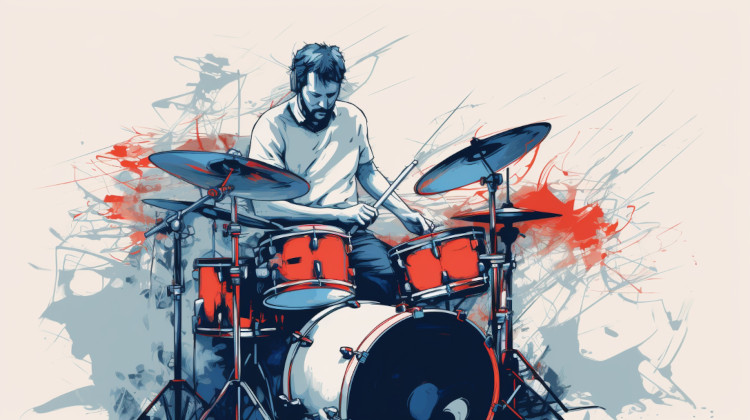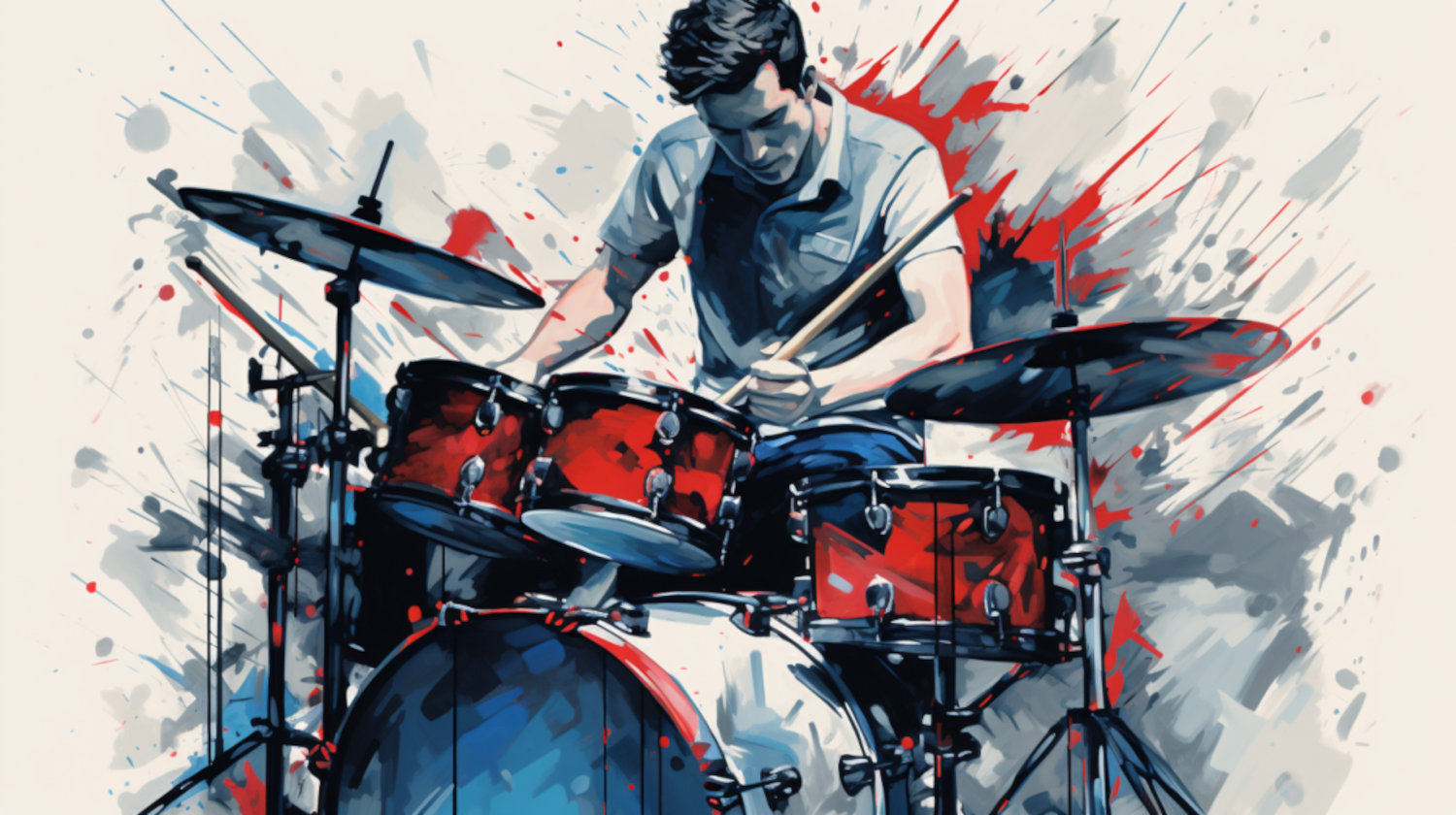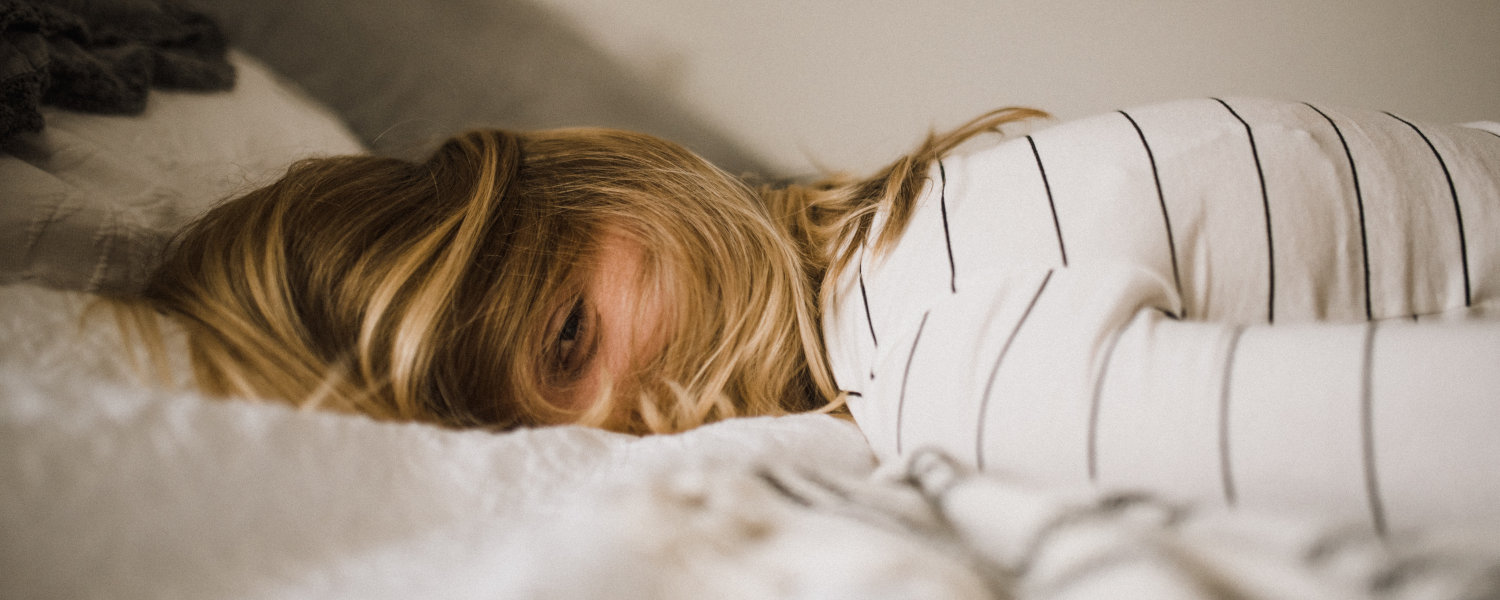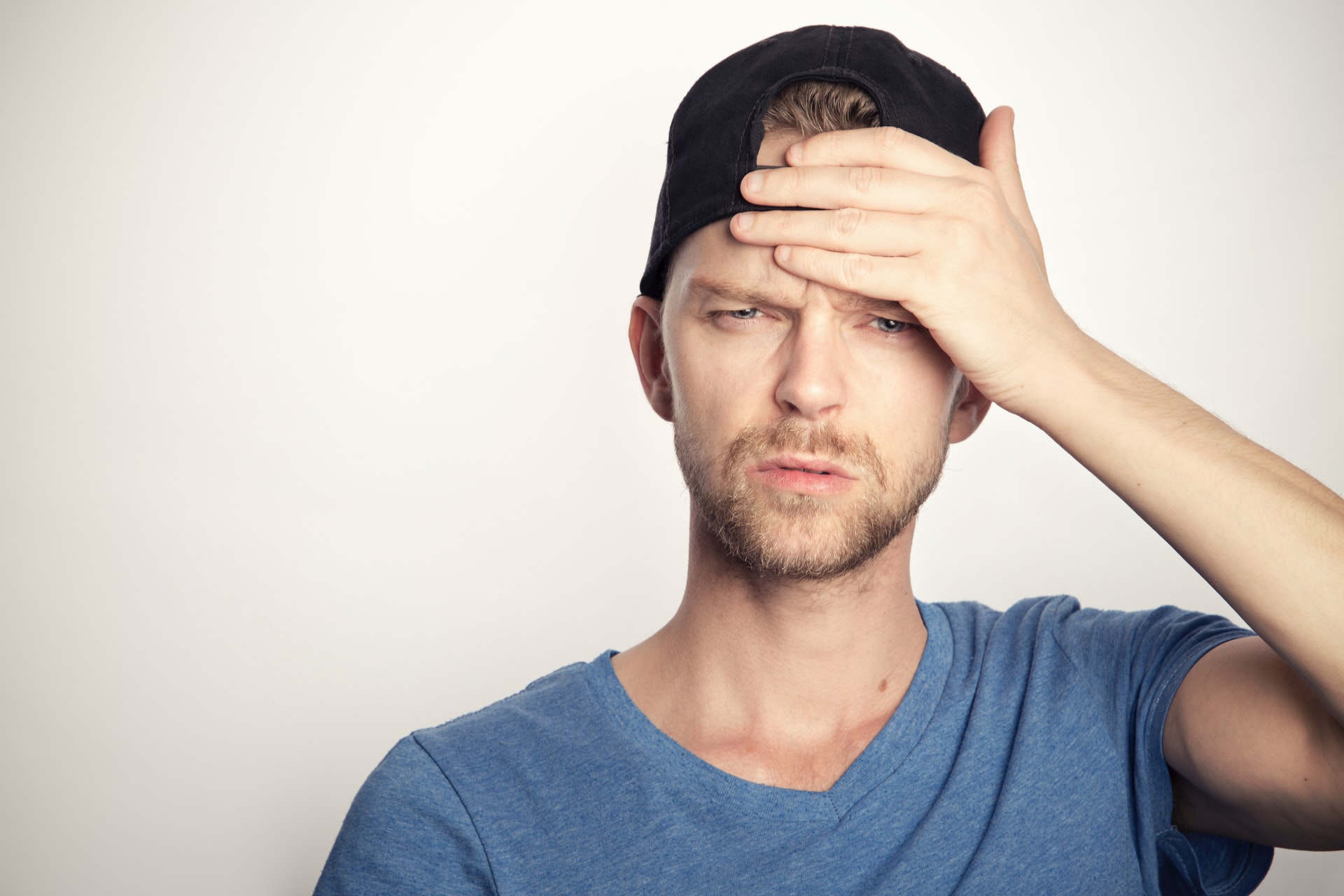In This Article
- Can weed cause headaches?
- Why does weed give me a headache?
- What is a weed hangover?
- How can I avoid or minimize the chances of getting a headache from weed?
- Before Using Cannabis
- During Cannabis Use
- Does the type of weed product or consumption method matter?
- What should I do if I get a weed headache?
- References
Key Takeaways
- Overusing cannabis, especially high-THC strains, may lead to headaches.
- Dehydration and individual reactions can contribute to cannabis-induced headaches.
- Moderation, proper hydration, and choosing suitable strains can help prevent discomfort.
Cannabis has earned a reputation for its diverse therapeutic properties – a multifaceted remedy in the world of medicine. It's widely acknowledged for its potential to relieve certain types of pain, ease nausea, reduce inflammation, and more.
Some consumers use the plant as a safer, natural alternative to pharmaceutical medications, especially for pain relief. And medical cannabis has gained legal recognition in most states, making it increasingly accessible to patients seeking its possible benefits. Chronic pain is high on the list of reasons why medical cannabis patients use the plant.
Despite its potential role in managing pain, there’s a subset of cannabis consumers who report headaches after consuming cannabis.
A peculiar response and somewhat paradoxical reaction, it’s sparked curiosity in the community. Why do some people get a headache from weed – primarily when others use it so effectively for pain?
To shed light on the intriguing dilemma, we had the privilege of speaking with NuggMD medical practitioner Dr. Brian Kessler. This illuminating interview explores the underlying mechanisms that may lead to cannabis-induced headaches.
Can weed cause headaches?
While cannabis is often used to alleviate pain, some users report headaches after consumption. Reasons cannabis may cause a headache include dehydration, overconsumption, and individual sensitivity to certain strains or consumption methods.
High-THC strains can sometimes cause tension or anxiety, leading to headaches. Additionally, smoking may introduce irritants that trigger headaches in some individuals. Understanding these factors can help users make informed choices and potentially avoid discomfort.
Dr. Kessler, a physician authorized to provide medical cannabis prescriptions, provides additional insight.
“Some individuals who use cannabis may experience what is known as a rebound headache, which occurs when certain medications are overused, but research hasn’t fully examined why this may happen.”
Research helps confirm Dr. Kessler’s remarks, with results suggesting cannabis use may lead to rebound headaches (in chronic migraine patients). People who use cannabis have significantly higher odds of also having rebound headaches compared to those who don’t use cannabis.1
These rebound headaches are more formally known as “medication overuse headaches.” They typically occur when you treat headaches with medication too often, and they’re especially common in people with chronic migraines.
The emerging research adds complexity to the relationship between cannabis and headaches. It prompts the medical community to delve even deeper into the potential causes – and solutions – for the unexpected side effects.
Why does weed give me a headache?

Several factors contribute to the causes of cannabis-induced headaches. According to Dr. Kessler, dehydration, in particular, plays a pivotal role in the potential for a weed headache. He also highlights the significance of maintaining proper hydration when using cannabis.
“Dehydration may be a key factor of getting a headache after using cannabis, so it is important to drink water and stay hydrated.”
And your consumption method can also play a crucial role. Different methods, like smoking, vaping, and eating edibles, have varying effects on the body. Edibles have a delayed onset, making it easier to consume too much in one sitting. Vaping and smoking can trigger respiratory irritation, which may further lead to a headache in some individuals.
While dehydration and consumption methods are factors that contribute to cannabis-induced headaches, individual responses still vary.2
An article from Yale examined why headaches may be a common side effect of CBD oil. Incorrect dosage, poor CBD oil quality, and lack of laboratory testing leading to high contaminants such as pesticides are three potential primary reasons. These reasons may be mirrored, in part, across the rest of the cannabis industry.
Without thorough federal regulation of the plant, incorrect dosages, poor quality weed, and lack of laboratory testing are potential risks. Fortunately, sticking with your local licensed dispensary is often the best way to combat the lack of wider-scoped regulation.
Some other factors for why weed may give you a headache can include individual sensitivity and the specific strain. Likewise, the presence of other substances, such as alcohol, can play a role. For example, combining alcohol and cannabis (getting “cross-faded”) may have a compounding effect on headache risk.
It’s important to stay well-hydrated and pay attention to your body’s unique responses when using cannabis. You’ll effectively minimize or eliminate the risk of unwanted side effects.
What is a weed hangover?
The residual or after-effects of cannabis use are often referred to as a weed hangover. It’s essential, however, to distinguish the differences between a weed hangover and an alcohol-induced hangover.3
According to Dr. Kessler, “Some people may report feeling tired or groggy after a night of cannabis use, but an alcohol hangover often comes with nausea, vertigo, headache, and sensitivities to light and sound. Overall, there are minimal reports of cannabis users experiencing similar ‘next day’ symptoms as alcohol users.”
An alcohol hangover typically encompasses many adverse side effects. These include:
- Higher blood pressure
- Sensitivity to light and sound
- Anxiety
- Irritability
- Sweating
- Vertigo
- Stomach pain
- Nausea
- Muscle aches
- Headache
- Thirst
- Weakness
- Fatigue
Meanwhile, weed hangovers are often only characterized by grogginess, tiredness, and a lingering sense of haziness. The symptoms are notably milder than those of an alcohol hangover. They also typically don’t involve nausea, severe headaches (even with a weed headache involved), or heightened sensitivities.
They also are typically shorter in duration. An alcohol hangover may last well over a day. Weed hangovers may last a few hours following cannabis use but don’t often extend past that, according to research.4 At most, they may last a full day following cannabis use, while alcohol hangovers can last multiple days for some.
However, individual responses to cannabis do vary. Some people may be more susceptible to these hangovers than others.
How can I avoid or minimize the chances of getting a headache from weed?

To minimize the risk of headaches when using cannabis:
- Stay Hydrated: Drink plenty of water before, during, and after consumption.
- Choose Strains Wisely: Opt for strains with balanced THC and CBD levels.
- Moderate Consumption: Start with low doses and avoid overindulgence.
- Consider Consumption Methods: If smoking causes discomfort, explore edibles or tinctures.
- Monitor Your Body's Response: Keep track of any adverse effects and adjust usage accordingly.
“Some people may react poorly to certain strains, and they may cause them to get a headache,” Dr. Kessler explains, “Which is why it is best to start with a low dose and adjust as needed while paying attention to the ratios of cannabinoids and terpenes that may be contributing to undesirable side effects.”
By adopting a few simple practices, you can enhance your cannabis experience and avoid or minimize the chances of a cannabis headache.
Before Using Cannabis
First, learn and understand your tolerance to cannabis – especially if you’re new to the plant. Start with a small serving size, and gradually adjust as necessary. It may help prevent overwhelming effects that lead to a headache.
Next, be sure to choose the right strain. Different strains may have varying effects on individuals. Research strains that have fewer reported incidents of causing a weed headache. Choose ones that match your desired effects.
Lastly, pay attention to the terpenes and other compounds in your cannabis product. Terpenes and cannabinoids may both influence the effects you experience. Experiment with different strains that have profiles that align with your preferences and sensitivities.
During Cannabis Use
Dehydration is a significant factor that may cause headaches while using cannabis. To mitigate this risk, ensure you drink enough water, especially when using cannabis.
Likewise, avoid excessive consumption. Overindulging in cannabis may lead to headaches, among other various side effects. Consume in moderation and give your body time to acclimate to the effects.
Pay attention to what consumption methods work best for you. Smoking and vaping can lead to respiratory irritation, which might contribute to headaches for some individuals. Consider alternative methods like edibles or tinctures, which might be gentler on the respiratory system.
Finally, maintain a comfortable environment when you use cannabis. Create a stress-free, comfortable setting to reduce external stressors. Ensuring a pleasant environment may help prevent tension- or stress-related headaches.
Does the type of weed product or consumption method matter?
The relationship between your cannabis consumption method and the likelihood of experiencing a headache is a subject of ongoing research. Presently, there’s no definitive answer. However, anecdotal reports and preliminary findings suggest the consumption method may indeed be a factor.
Dr. Kessler’s answer helps further uncover what may impact getting a cannabis-induced headache.
“Based on current research, it is hard to say if one consumption method is more likely to give you a headache. But from anecdotal reports, it may be wise to avoid smoking and high doses of THC in edible products.”
Smoking can introduce irritants to the respiratory system, potentially leading to headaches in some consumers. The same goes for vaping, though it may still be a gentler alternative. Alternatively, consuming edibles or tinctures bypasses the respiratory system entirely. Ingesting cannabis is one of the best ways to consume it, in part for this reason.
While edibles help bypass potential headaches from irritation in the lungs, they may still cause headaches. High doses of THC are especially common with edibles, increasing the likelihood of unwanted side effects like headaches or dizziness. That’s why you should always start with lower doses, especially if you’re newer to cannabis. Adjust gradually to find the right balance for your needs and preferences.
What should I do if I get a weed headache?

You followed all the steps, but you still have a weed headache. Fortunately, there are several steps you can take to minimize discomfort and potentially shorten the headache’s duration.
Dr. Kessler offers some simple tips to get rid of a weed headache quickly.
“If you find yourself with a headache after using cannabis, stay hydrated, relax, and lie down in a dark and quiet space, or try drinking some sugar-free caffeine to help alleviate symptoms.”
Drink water to eliminate dehydration as a factor. Only consume weed in a relaxing, comfortable environment. Reducing external stimuli can ease discomfort.
And Dr. Kessler recommends sugar-free caffeine to constrict blood vessels, which may then reduce headache symptoms. Use caffeine in moderation, though, as excessive caffeine intake can lead to other negative symptoms.
Know that there are resources available for patients who consume too much THC, which may be the root cause of headaches. Utilize these resources to eliminate the possibility of the next weed headache.
If all else fails, non-prescription pain relievers may be effective in reducing headache symptoms. Follow dosage guidelines on the medication label, and be sure to take over-the-counter meds in moderation.
Individual responses to these strategies to eliminate the weed headache vary. Choose the one or combination that works best for you. Contact a medical health professional for further advice if your headache worsens or persists.
References
- Zhang N, Woldeamanuel YW. Medication overuse headache in patients with chronic migraine using cannabis: A case-referent study. Headache. 2021;61(8):1234-1244. doi:10.1111/head.14195
↩︎ - Arca KN, Halker B. Dehydration and Headache. Current Pain and Headache Reports. 2021;25(8). doi:https://doi.org/10.1007/s11916-021-00966-z
↩︎ - Chait LD. Subjective and behavioral effects of marijuana the morning after smoking. Psychopharmacology. 1990;100(3):328-333. doi:https://doi.org/10.1007/bf02244601
↩︎ - McCartney D, Suraev A, McGregor IS. The “Next Day” Effects of Cannabis Use: A Systematic Review. Cannabis and Cannabinoid Research. 2022;8(1). doi:https://doi.org/10.1089/can.2022.0185
↩︎
The information in this article and any included images or charts are for educational purposes only. This information is neither a substitute for, nor does it replace, professional legal advice or medical advice, diagnosis, or treatment. If you have any concerns or questions about laws, regulations, or your health, you should always consult with an attorney, physician or other licensed professional.




